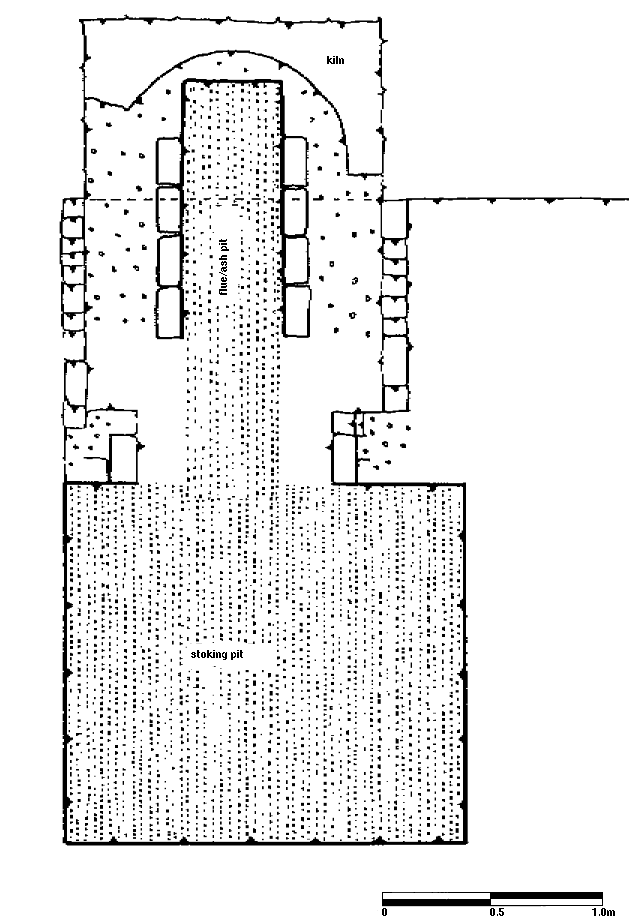
Excavated in 1956 by N E S Norris for the Sussex Archaeological Society. A brief note published in 1970 includes a schematic plan and section which appear to combine information from the excavation and from Ure's Dictionary of Arts Manufactures and Mines (Norris 1970, 168-70). No site records have survived. Photographs were taken but no prints or negatives have been traced except that published in 1962 (Atkinson 1962, 189 reproduced below, Figure 68). The site is now used as a garden, the kiln chamber is filled with rubbish, but the upper part of the arched roof is clearly visible (Figure 69). The figure was produced using dimensions from the published plan with added detail from the photograph. Associated material includes muffle fragments and furniture.
Pipes recovered from beneath the stoke pit floor are attributed to Pink & Co working 1832-45 and Charles Bishop working 1838-45. Pipes recovered from the fill of the stoke pit included marked examples attributed to John Tucknott, 1851-62; George Corner, 1862-67 and James Harrington & Sons, 1874-8. Alterations to the kiln, culminating in a dramatic reduction in its height by filling in the stoke pit and constructing a new ash pit at a higher level, indicate a long working life spanning the second half of the nineteenth century. The broken line on the plan indicates the continuation of the wall above the kiln niche.